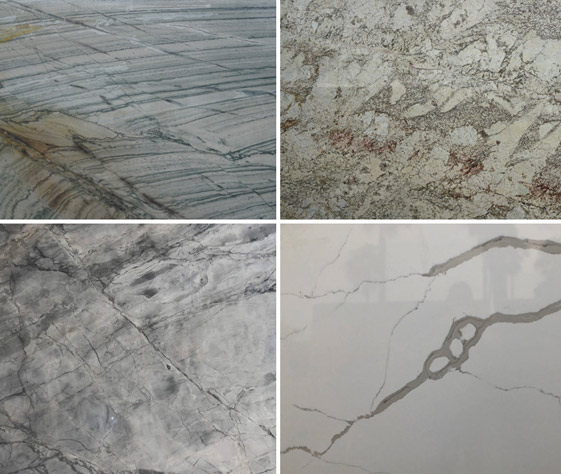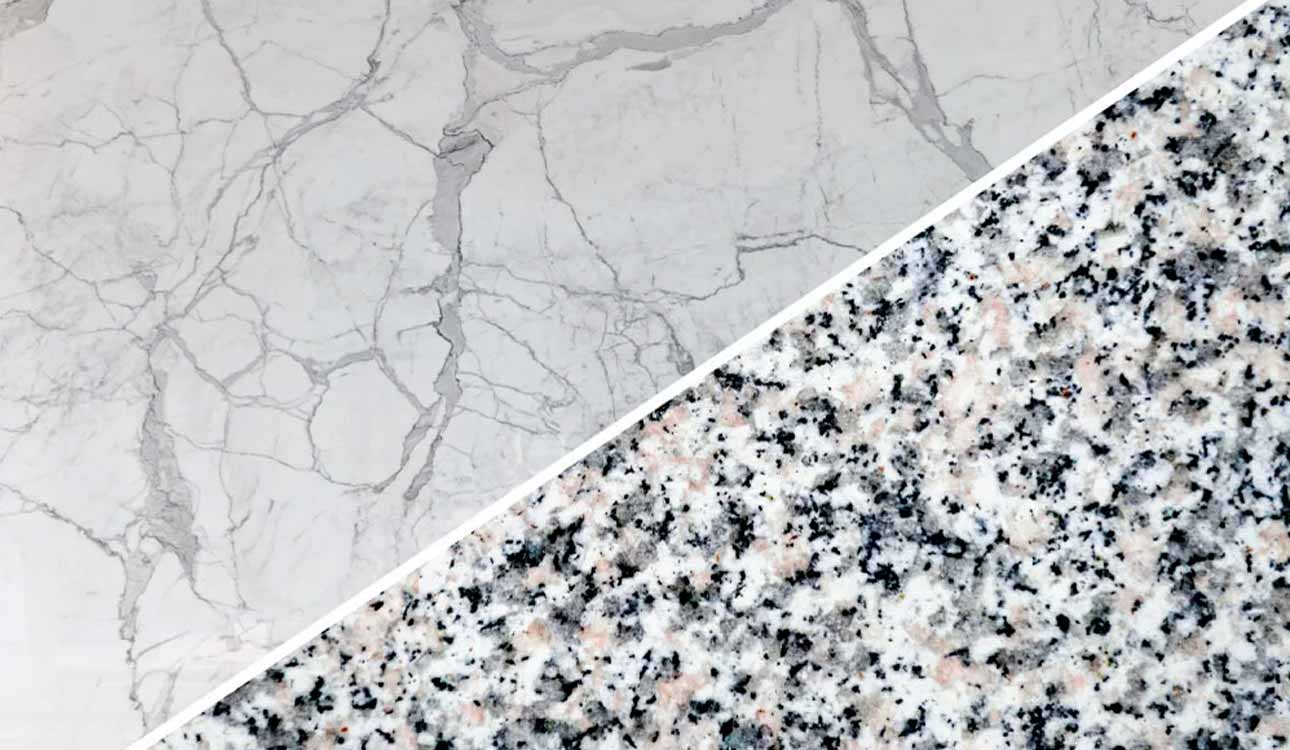Granite vs. Marble
Most people ask what difference there is between granite and marble.
Compared to the diversity of colors available in granite, marble is almost always white. However, when other minerals are presented in this stone, it can acquire stripes, also called veins, black, yellow, blue, or gray tones. Marble is also brighter than granite. Now available in the current market, synthetic variants include marble, glass, and other variants, to make marble stronger. But less resistant than granite.
Quartz vs. Marble
Many quartz countertops are a mixture of granite, mar,ble, and other stones including natural quartz, giving it the name of “reconstituted stone.” While marble is natural and has few variations in its appearance. Quartz can imitate granite and marble or have a completely different appearance. The quartz comes in a wide range of colors and prints.

The main difference between quartz and marble would be a weakness. Marble is a delicate stone that can be easily spoiled, making it less common in cooking areas with a lot of traffic and more attractive in bathrooms.
The quartz is not damaged so easily and is less porous than marble. So do not stain so easily.
Granite Vs. Quartz
No two sections of granite are the same, just like quartz. Both have endless color options. However, the main difference when it comes to the uniqueness of both granite and quartz is that granite comes from nature and requires no processing. Quartz is designed in a factory, even though it does come from quarried stone. Quartz can be made to look like granite, but if you truly want something straight from the earth, it is best to go with granite.
Both stones are durable, scratch and stain-resistant. That said, the only disadvantage of granite to quartz is that granite requires sealing every year to ensure it doesn’t stain or get damaged. Quartz doesn’t need to be sealed. On the other hand, if quartz is left in direct sunlight, the colors may fade over time and will require routine maintenance to enhance the shine.

Comparing Countertops
Now, let’s have a look at how these materials compare when used as countertops. When you compare quartz to granite countertops, you will find that quartz is extremely hard and durable, stain-resistant, and also chip resistant. Just like granite. However, quartz is not as resistant to heat as granite. Unlike granite, you should never place a hot pan or pot directly onto a quartz counter. If you do that, you could cause irreparable damage or discoloration.
On the other hand, looking at granite and marble, you will find that marble is by far the softest of the three stones for countertops. Marble is not usually put in kitchens because it can chip, get stained, and is prone to scratching. However, if you have areas in your kitchen that are not high-traffic or places where you want a brilliant accent, the smooth appeal of marble is a great choice.
Granite, Quartz, Or Marble: Which Do You Choose?
Countertops are an important component of the kitchen. If you want stone countertops that come in a variety of colors and patterns, it is low maintenance, and are very durable, then granite is a great choice. If you want a countertop that may require a bit more upkeep but looks incredible in any light, marble may work for you. Lastly, if you want low maintenance and do not require sealing like granite, then quartz is ideal.






